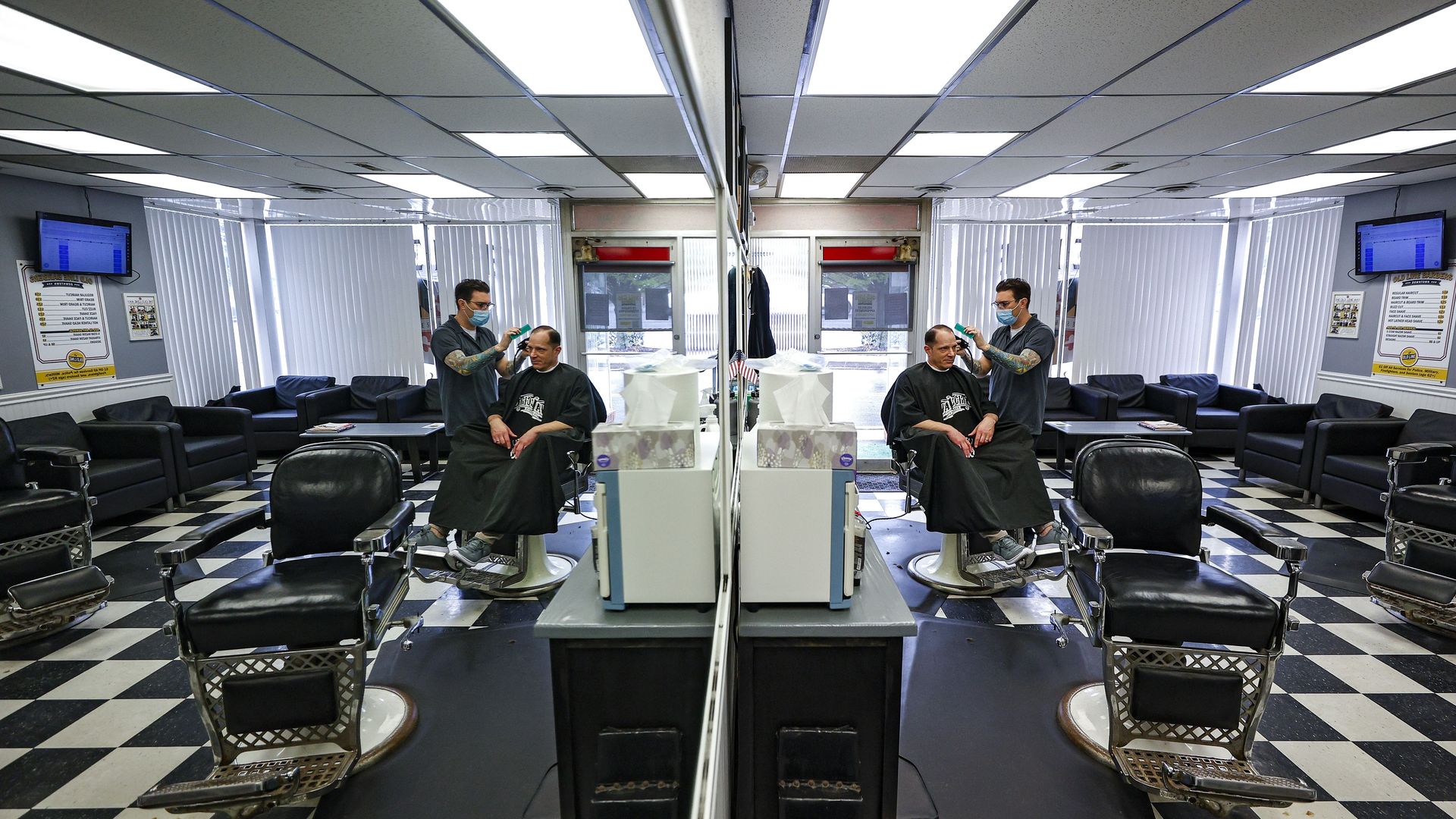Apr 25, 2020 - Health
Business to warn against patchwork rules
Add Axios as your preferred source to
see more of our stories on Google.

Maryland State Police Detective Steve Dulski gets a trim at Old Line Barbers in Bel Air after Gov. Larry Hogan let essential employees get haircuts. Photo: Patrick Smith/Getty Images
